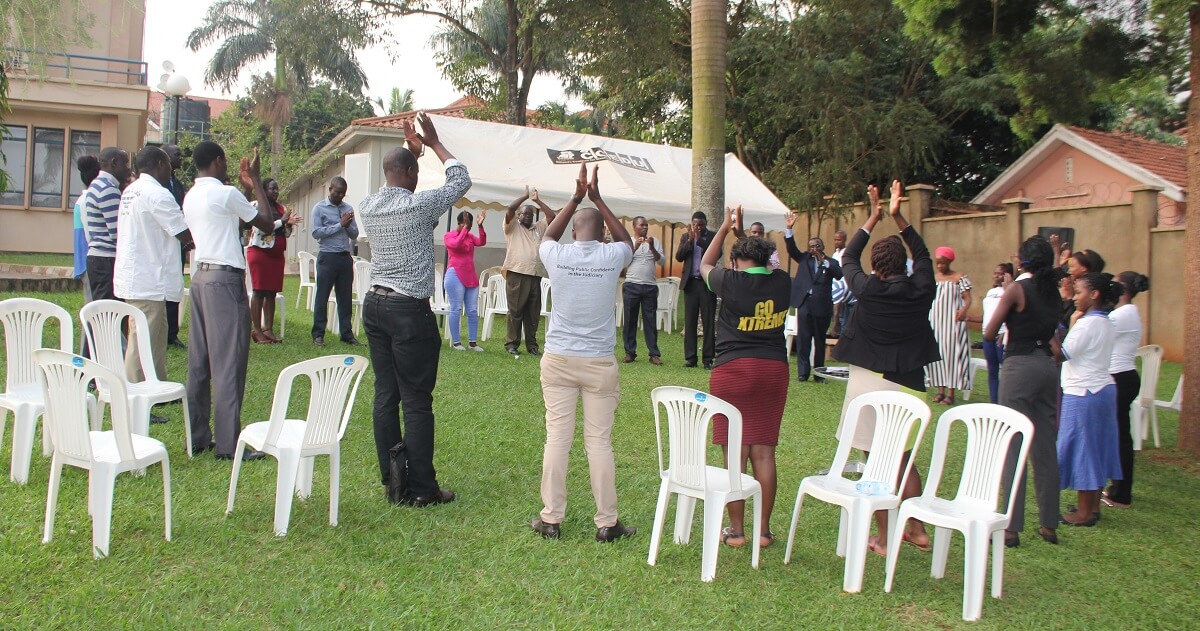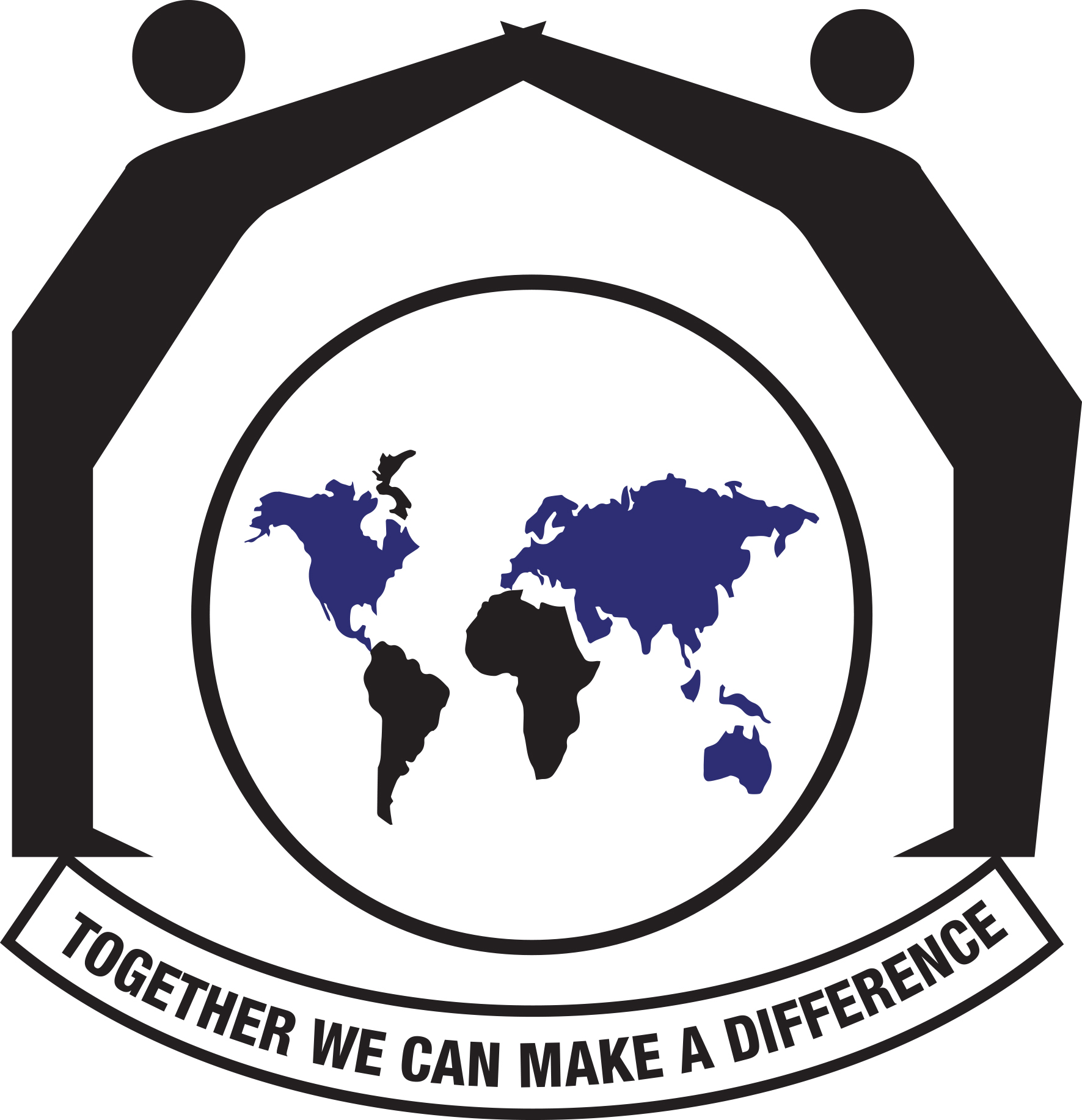
This is the support arm that provides for the planning, implementation, and analysis of FHRI’s systems and performance in order to achieve the objectives set out in the Strategic Plan. Organizational development aims to enable FHRI to respond and adapt to the changes and technological advances in the sector.
Organizational development consists of five components including Partnership-building, Governing Bodies and membership strengthening, staffing, Monitoring, Evaluation and Learning and Office administration.
- Partnership-building
This component seeks to strengthen existing partnerships and build new ones for collective action and enhanced impact.
FHRI is an active member of six (6) networks/coalitions including: the East and Horn of Africa Human Rights Defenders Network (EAHRDP)/Defenddefenders, Legal Aid Services Providers Network (LASPNET), Coalition Against Torture (CAT), World Coalition Against the Death Penalty (WCADP), the Civic Education Network for Eastern and Southern Africa (CENESA) and the Federation of International Human Rights Defenders (FIDH).
- Governing Bodies and Membership Strengthening
This component seeks to build an effective Board of Directors and active membership base to support FHRI in achieving the goals and strategies under its new Strategic Plan.
FHRI is a membership organization with an organizational structure that comprises her General Assembly, Patron, Trustees, Board of Directors, and the Secretariat. While the General Assembly is the supreme governing body of FHRI, the Trustees are the custodians of FHRI Constitution and property. The Board of Directors provides strategic direction to the organization while the Secretariat is the implementing arm.
FHRI holds Annual General Meetings (AGM) for its membership to reflect, adopt, and approve new strategic plans, annual reports and the audit reports. FHRI also convenes General Assemblies every three years to elect new members to the Board of Directors. The Board of Directors meets three times a year to appraise staff, discuss, and prove activity reports, budgets and program work plans.
- Staffing
The Secretariat is composed of programme, administration, volunteer staff and interns.
A. Executive Office
- Dr. Livingstone Sewanyana (Executive Director)
- Ms Milly Nakakande (Executive Manager)
B. Programs Office
- Ms. Sheila Muwanga (Deputy Executive Director (Programmes)
- Ms. Christine Kirabo (Volunteer Programs)
- Ms. Gladys Arigye (Volunteer Programs)
C. Research
- Ms Sheila Amujal (Research Assistant)
- Ms. Omega Kasirye (Research Assistant)
- Ms. Victoria Nabbumba (Volunteer – Research Division)
D. Capacity Development
- Ms. Connie Numbi (Director CDD/ Manager Death Penalty)
- Mr. Elly Kasirye (Project Officer, Civic Education)
- Ms. Sumaiya Nankya (Volunteer-CDD)
E. Legal Services
- Ms. Solome Nagadya (Ag. Director Legal Services Division)
- Ms. Esther Kaggwa (Legal Associate, Legal Aid Unit)
- Ms. Brenda Katusiime (Volunteer Legal Aid Unit)
- Mr. Deo Miiro (Paralegal Kalangala Office)
- Ms. Doris Turyamusima (Volunteer Legal Aid Unit)
- Mr. Joshua Kago Mahande (Legal Intern- Kampala)
- Mr. Derrick Fredrick Namakajjo (Legal Intern- Kampala)
- Mr. Richard Akora (Legal Intern-Wakiso)
- Mr. Afura Huzaifa (Legal Intern-Kampala)
F. Communication and Information
- Ms. Elizabeth Nantamu (Coordinator, External Service Division)
G. Finance
- Ms. Rose Kamuli Mwesigwa (Director, Finance & Administration)
- Ms. Gladys Mirembe (Finance & Administration Assistant)
- Ms. Winnie Munyegera (Administrative Assistant)
- Ms. Jane Nantege (Volunteer Finance)
H. Administration
- Mr. Stephen Sebaana (Office Manager)
- Ms. Elizabeth Nakato (Front Desk Officer)
- Mr. Mathew Sekitto (Office Assistant)
- Ms. Olivia Kigozi (Welfare Assistant)
- Mr. Moses Kyazze (Senior Driver)
- Mr. Moses Nyanzi (Senior Driver)
- Mr. Haruna Serusiiti (Gardener/ Cleaner)
- Mr. Richard Okeya (Security Guard)
- Mr. James Wandulu (Security Guard/ Gardener)
- Mr. Samuel Kamuntu (Guard -Democracy House)
- Ms. Sarah Najjemba (Cleaner)
- Mr. Andrew Mwebaze (Cleaner)
- Monitoring, Evaluation and Learning (ME&L)
The component seeks to strengthen FHRI’s Monitoring, Evaluation and Learning system to effectively document impact, and better inform future planning and programming.
